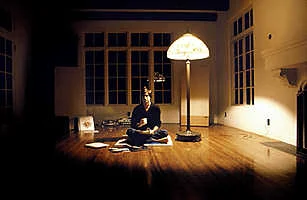Steve Jobs: Remembering the dissatisfied man
Many famous Steve Jobs moments involve him speaking before enraptured audiences. One of my most vivid Jobs memories is of the time I saw him standing quietly at the back of one.I was attending the SIGGRAPH computer graphics conference in Boston in 1989, and was trapped in a throng on the show floor watching one of Pixar's short cartoons. (The company hadn't started making feature-length ones, and wasn't yet a cherished icon of American entertainment.) The person next to me happened to be Jobs, who had bought George Lucas's graphics division in 1985 and bootstrapped it into independent existence as Pixar.
I'm not sure if anyone else noticed him watching the movie and observing the crowd — they were too busy being entertained. He beamed with quiet satisfaction, wearing the same cat-like grin he did at the launch of the original Macintosh in 1984. In recent years, as I attended Apple product launches where Jobs was the center of attention, I saw it repeatedly.
And yet,'satisfaction' is nowhere on the list of words that leaps to mind as I think about Jobs' life and career. He was famously dissatisfied — with products under development, with the people who reported to him, with Apple's competitors and partners, with the way the technology industry worked, with life in general.
I found that smile of contentment more compelling than the praise ("insanely great!") that Jobs routinely bestowed on Apple products. It looked utterly sincere. But it was also fleeting. A Jobs who had kept on being pleased with Pixar as it existed in 1989 would never have instigated the changes that made Toy Story possible, just as a Jobs who was happy with the Apple's lot in life in 2001 would never have presided over a decade's worth of ambitious expansion.
To me, the most remarkable thing about his career wasn't the Apple II, the Mac, Pixar, the Apple Store, the iPod, iTunes, the iPad or any of the other blockbusters he guided into existence — even though any one of them would have been enough to assure a place in the history of business and technology. (Steve Wozniak contributed to only one of these hits, the Apple II, and will be rightly revered for it forever.) Rather, it's the durability and consistency of his vision that is astonishing.
When Jobs cofounded Apple with Woz in 1976, he was 21 and the personal computer industry barely extended beyond the meetings of the Homebrew Computer Club, the Silicon Valley institution that counted Jobs and Woz among its regulars. By 1977, the Apple II was on the market and Jobs was arguably the most influential figure in the business. What were the chances that he would still dominate it thirty-four years later — not by riding out his successes but by restlessly moving on to the next big thing, again and again?
.
Sent from my BlackBerry®
powered by TwitterFeeds.blogspot.com
Twitter Feeds Update















